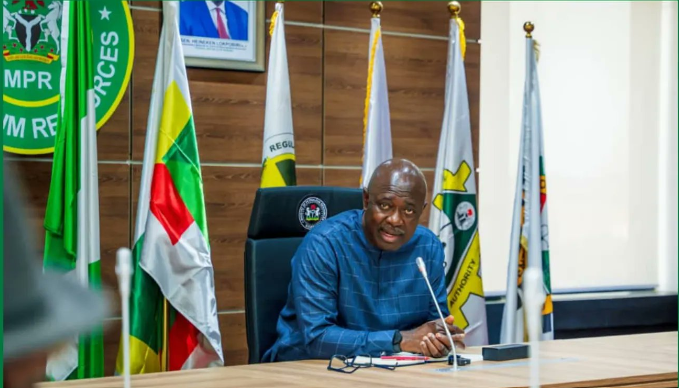Petroleum Minister Urges EPC Firms to Return, Promises Investment-Friendly Climate

The Minister of State for Petroleum Resources (Oil), Heineken Lokpobiri, has called on Engineering, Procurement, and Construction (EPC) companies that previously exited Nigeria’s oil and gas industry to return, assuring them of a reformed and stable investment environment under the current administration.
Lokpobiri appealed on Monday during the 2025 Nigeria Annual International Conference and Exhibition (NAICE) hosted by the Society of Petroleum Engineers (SPE), Nigerian Council. He said the President Bola Tinubu-led government had made significant strides in creating a business climate conducive for both local and foreign investors.
“I would like to use this opportunity to make a strong case to EPC companies that have previously operated in Nigeria and have since exited,” he said. “The current administration has worked tirelessly to ensure a more stable and investment-friendly business environment.”
Lokpobiri emphasized that reforms under the Petroleum Industry Act (PIA), coupled with strategic policy incentives, position Nigeria as a “dependable and rewarding destination” for EPC companies.
“EPC firms play a crucial role in infrastructure development, project execution, and technology transfer within the energy sector. We invite you to return, reinvest, and become part of Nigeria’s renewed journey toward energy security and economic prosperity,” he added.
Nigeria has over the years hosted several prominent EPC firms such as Willbros and McDermott, which have since exited the sector. Their absence has been linked to ongoing delays in project execution, especially in deepwater oil blocks.
During a recent meeting with stakeholders in Florence, Italy, the minister expressed concern over the high number of idle and undeveloped oilfields, warning international oil companies (IOCs) that failure to utilise these assets could result in their revocation. He noted that while the Tinubu administration has provided a favourable business atmosphere, IOCs must show greater commitment by making financial investments to ramp up production.
According to the Nigerian Upstream Petroleum Regulatory Commission, at least 220 oil blocks remain underutilised across the country, including 59 in deep offshore regions.
Addressing the NAICE conference theme, “Building a Sustainable Energy Future: Leveraging Technology, Supply Chain, Human Resources, and Policy,” Lokpobiri acknowledged global pressures such as climate concerns, geopolitical instability, and fluctuating currencies, all of which are reshaping the energy landscape.
He stressed the importance of innovateion and technology in navigating these challenges. “From advanced seismic acquisition to non-invasive survey techniques, exploration is becoming more precise, environmentally conscious, and cost-effective,” he said.
Lokpobiri also highlighted the transformative role of artificial intelligence in oil and gas operations, describing it as a tool for improving productivity while reducing operational costs.
On human capacity development, the minister reaffirmed the federal government’s commitment to equipping Nigerians with the skills necessary to thrive in the evolving energy industry.
“Africa must develop the talent needed to drive sustainable growth in its energy sector,” he concluded.








